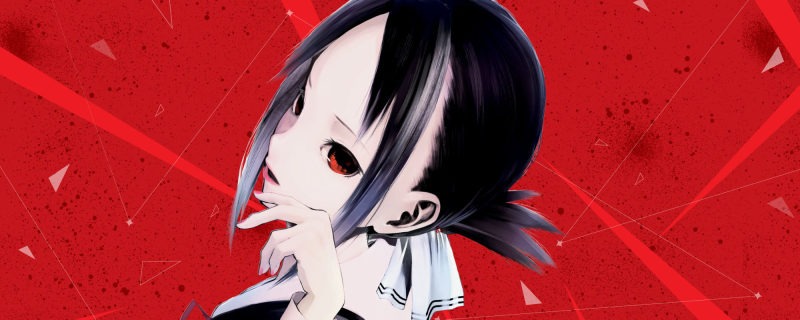 I’m not one for comedies, anime or otherwise. They usually strike me as dumb and trying too hard. My sense of humor leans toward satire and slap stick like Takeshi’s Castle (if you haven’t seen it, go watch an episode on YouTube right now!). When I saw Kaguya-sama come out in Crunchyroll, I decided to give it a watch, fully expecting yet another sandpaper-to-eyeballs comedy.
I’m not one for comedies, anime or otherwise. They usually strike me as dumb and trying too hard. My sense of humor leans toward satire and slap stick like Takeshi’s Castle (if you haven’t seen it, go watch an episode on YouTube right now!). When I saw Kaguya-sama come out in Crunchyroll, I decided to give it a watch, fully expecting yet another sandpaper-to-eyeballs comedy.
I actually did more than just roll my eyes or offer a small chuckle. I laughed.
Kaguya-sama grabbed me with its James Bond opening. I’m a fan of the Bond franchise despite its portrayal of women and other problems. The opening surprised me and nicely summarized the internal conflict. Kaguya-sama follows the president of the student council, Miyuki, who likes the vice president, Kaguya. She reciprocates the feelings, but they both go to an Ivy League high school. Kaguya comes from an ultra-rich family and succeeds in most everything naturally. Miyuki, comes from a poor family and earned his place through hard work. Kaguya wants to become the president. She wants to show Miyuki her abilities. Miyuki cannot let up lest he lose his full-ride.
Both have too much pride to be the first to say dai suki. Each decides to trick the other to confess their feelings first. The comedy surrounds their elaborate plans exploding on them as they slowly grow closer to each other.
The anime plays with the end-0f-the-world melodrama that characterizes teen relationships. The narrator acts like a nature documentary narrator, deadpanning the melodrama. The contrast and play on nature documentaries had me laughing several times. Normally such melodrama irritates me, but here it works. It’s entertaining to watch geniuses be foisted by their own petard.
The secretary, Chika Fujiwara, blows up their plans. She comes off as an airhead, but you quickly learn she is the smartest person in the room. She is so smart, she acts stupid. She knows multiple languages and can run circles around the president and vice president when she wants to. But her genius makes her nonfunctional; she over-thinks things when she plots. Her always cheery nature contrasts with the more serious characters as does her apparent cluelessness contrasts with their awareness.
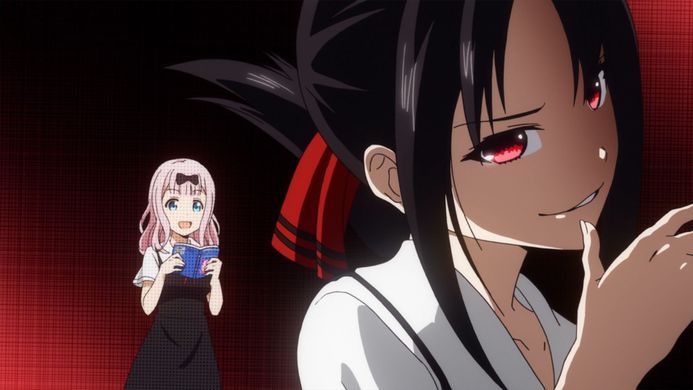
I had suspected the two-steps-forward-one-step-back nature of the story would irk me. But none of the characters are blockheads. They are very much aware of each other’s feelings. Even Chika knows Kaguya and Miyuki are fond of each other. But the story likes to play on this awareness while it continues to poke at the relationship melodrama. I suspected the premise would wear thin, but by the end of the 12 episodes, I wanted to see what other hijinks they would come up with.
The character designs are refreshing. Miyuki always looked sleep deprived (oh, how I identify!) and Kaguya had a nice mix of imperiousness and capability. Of course, she sometimes plays on the male protection instinct in an effort to trick Miyuki (and out of a genuine desire to have him protect her–this desire irks her). While the designs don’t deviate far from the usual anime visual language, they have enough style to set the designs apart.
As usual for this type of anime, parents don’t play much of a role. Involving parents more would add spice to the series, but it’s a delicate balance. Right now the characters remain balanced with their tension and personalities. If you add too many characters too fast, the comedy could fall apart. Too much of it relies on the dynamic between the personalities for too many more characters to join. The story also sets itself up for a possible failure when the two finally confess to each other. And they will eventually have to. If the series falls into the usual lack of resolution, the audience will feel cheated and all the maneuvering will feel like a manipulation. A funny manipulation, but a manipulation nonetheless.
Kaguya-sama reminds me to keep trying anime that normally wouldn’t interest me. After all, I’m quickly approaching 40; the same old high school fare that dominates Western anime releases wears thin. But well-written characters and satire continue to appeal to me. Just when I had given up on anime comedies I stumble across Konosuba and Kaguya-sama. So far, anime comedies have a better laugh record than Hollywood comedies. Those always leave me annoyed and put off. I feel insulted by how lowbrow they are. Of course Kaguya-sama isn’t the highest intellectual fare, but it likes to wink at you as if you are sharing a joke on the characters. It doesn’t talk down to you or treat you as a simpleton like most Hollywood comedies do. The characters also don’t fall into the irritating humor that often appears in anime–yelling and loud, canned laughter and running jokes into the ground. That, perhaps, is this anime’s greatest strength. The jokes keep coming with variety despite keeping to a single theme. You don’t have reoccurring gags like FMA’s short jokes.
I’m not certain if Kaguya-sama would benefit from a second season. While I’d like to see one, the anime could overstay its welcome. It could start to run out of ideas. It can fall into repetition. Although it has a lot of themes it could play with. Kaguya and Miyuki’s difference in wealth offers a well for jokes. Season 1 tapped into it a few times, but there are more laughs to be had there. Miyuki’s sisters and family offers more. Of course, the series sometimes shows its underlying serious themes, particularly with Kaguya. Season 2 can tap this. I’m not certain which way the manga and anime will go, but I suspect it will continue to be entertaining.
Kaguya: Love is War has a heart to it. You root for Kaguya and Miyuki to win in each of their contests, knowing that the final loss will truly be a win for them both.
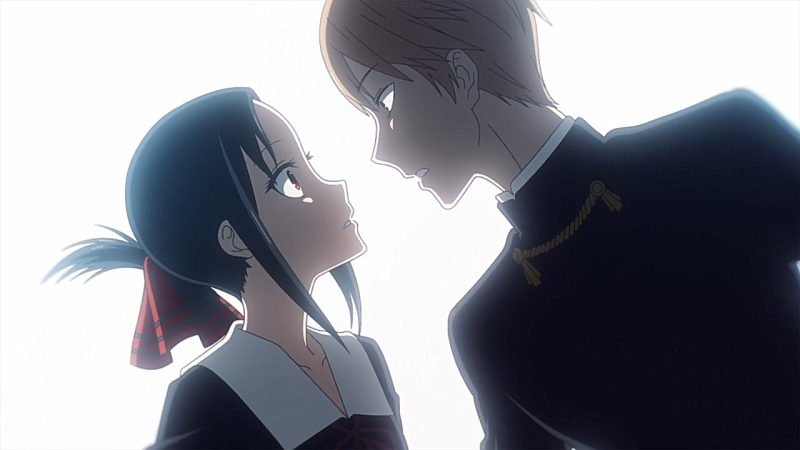
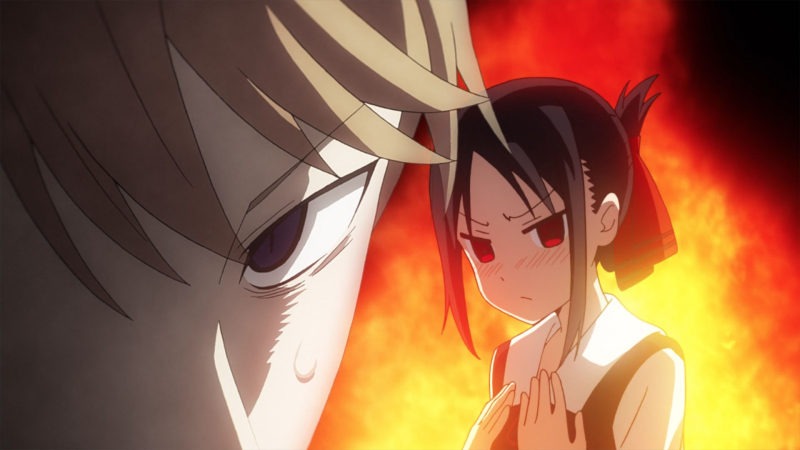



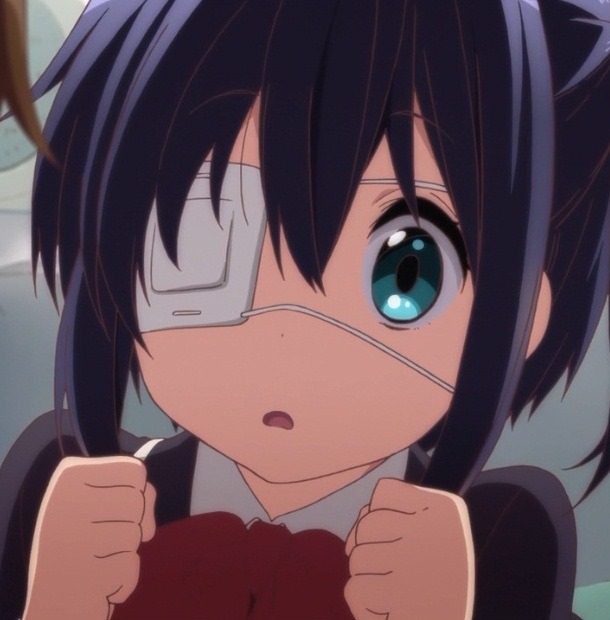
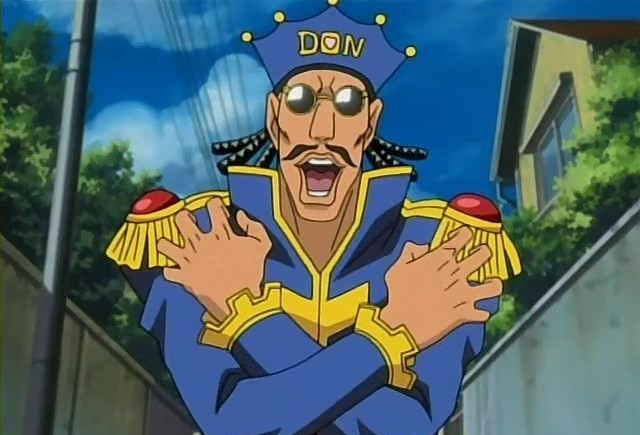
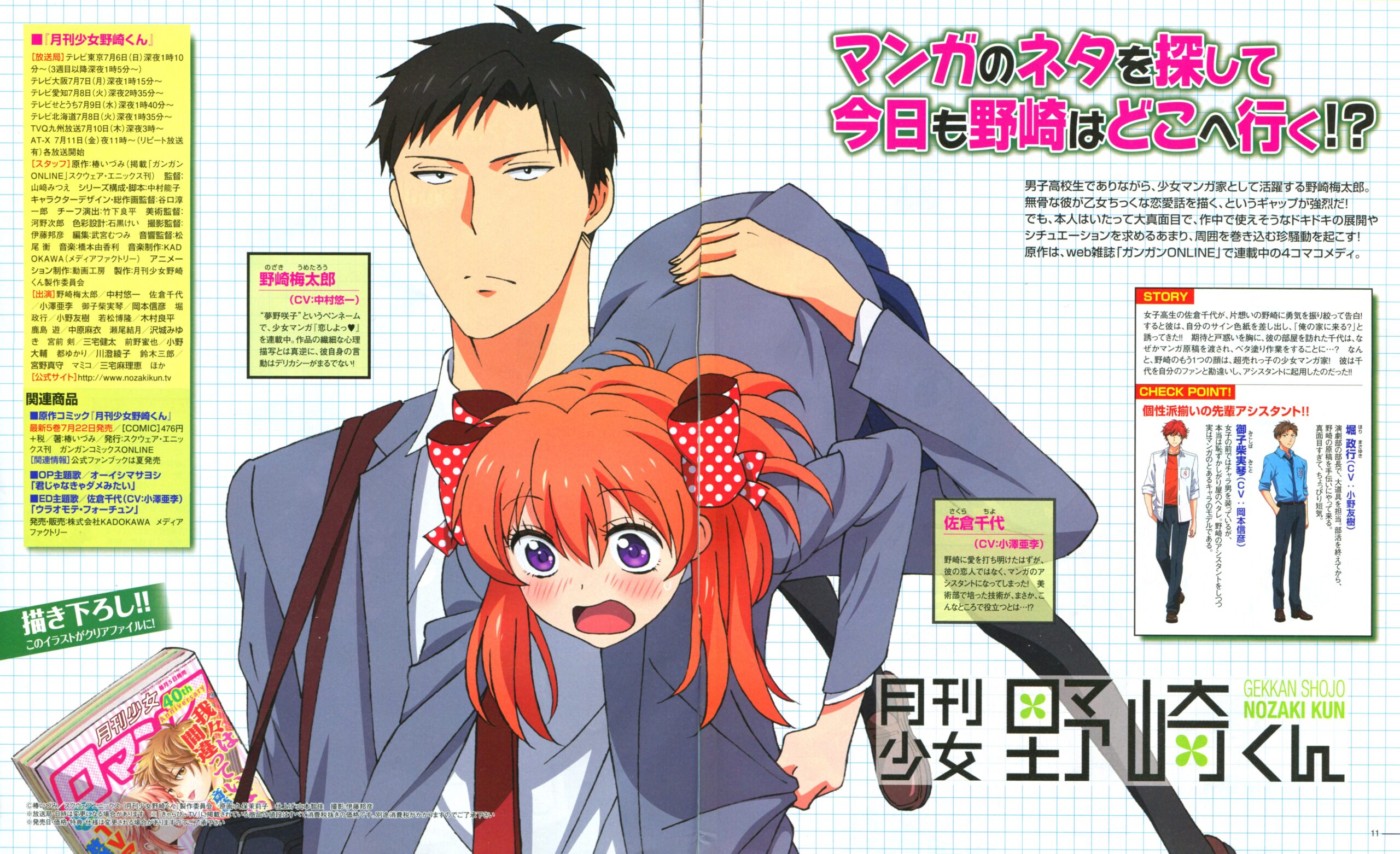
Thank you for the thought and work you do to make these posts.
Thank you for the encouragement!
Aaaand now looking back in 2025, they nailed it with both season 2 (And s3 and OVAs) AND incorporating a parent humorously in a way I would not have expected.
This and Konosuba are just like you said, and both crack me up